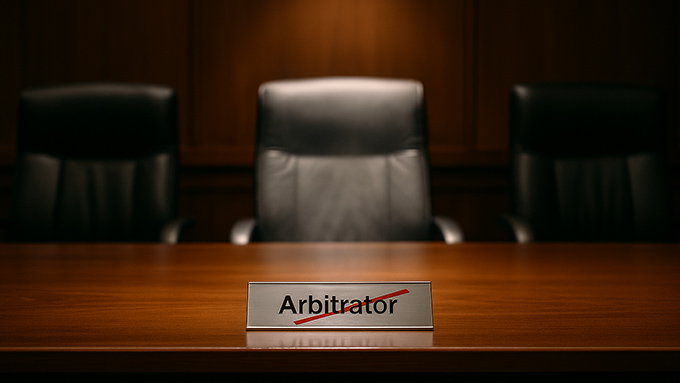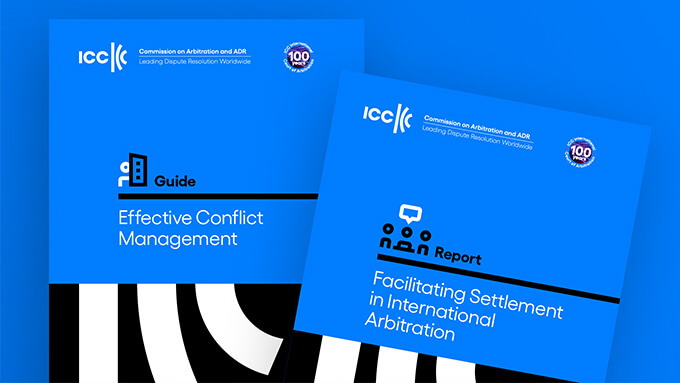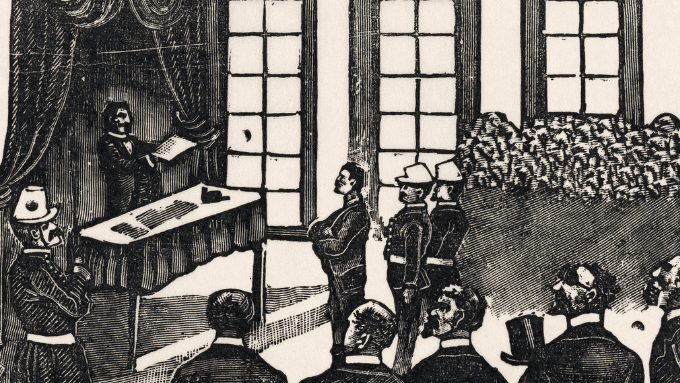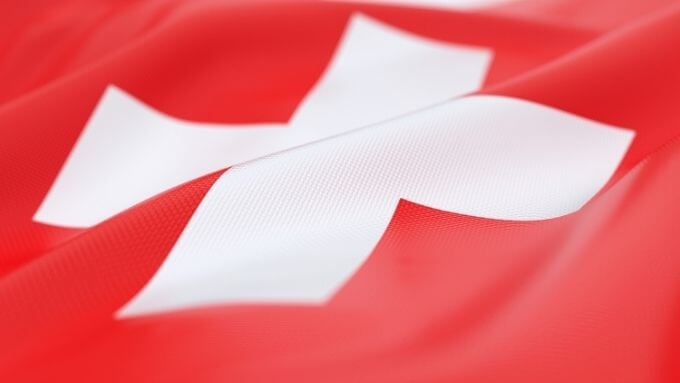The Recent Philip Morris V. Uruguay Decision
The Philip Morris v. Uruguay case pending before the International Centre for Settlement of Investment Disputes (“ICSID”) has been recently decided in favor of Uruguay, the Respondent. This lawsuit, filed by Philip Morris, was decided by the arbitral tribunal that was constituted by Piero Bernardini (Chairman), Gary Born (co-arbitrator appointed by the Claimant), and James Crawford (co-arbitrator appointed by the Respondent), on July 8, 2016.
This case is important, not only because it represents the first time that a tobacco company sued a sovereign state before an international forum, but also because it concerns very important issues, such as the limits of the regulations setting forth restrictions in the tobacco industry.
The relevant decision shall be analyzed in this article.
In General
In this case, the Claimants are Philip Morris Brand Sàrl (Switzerland) (“PMB”), Philip Morris Products S.A. (Switzerland) (“PMP”), and Abal Hermanos S.A. (Uruguay) (“Abal”) (jointly referred to as the “Claimants”). PMB and PMP are companies which are both seated in Neuchâtel, Switzerland, while Abal is organized under the laws of Uruguay, and has its registered office in Montevideo, Uruguay, whose shares are directly owned by PMB. The Respondent is the Oriental Republic of Uruguay.
The claims are based on the Agreement between the Swiss Confederation and the Oriental Republic of Uruguay on the Reciprocal Promotion and Protection of Investments, dated 7 October 1988 (“BIT”), which entered into force on 22 April 1991.
The request pertaining to this case was registered by the Secretary General of ICSID on March 26, 2010, and the arbitral tribunal was constituted on March 15, 2011. Accordingly, the case has been pending for more than six years.
The core of the claims of the Claimants pertain to allegations that Uruguay violated the BIT in its treatment of the trademarks associated with cigarette brands in which the Claimants had invested, by implementing strict tobacco-control measures regulating the tobacco industry. These measures shall be further explained, below.
The Measures Challenged by the Claimants
In this lawsuit, the Claimants challenged two measures adopted by Uruguay. The first measure, called the single presentation requirement, sets forth that tobacco manufacturers may only market one variant of cigarette per brand family. Accordingly, each cigarette brand should have a single presentation, and different packaging or variants for cigarettes may not be sold under a given brand. As a result of this requirement, the Claimants were under obligation to sell just one product variant under each brand.
In the arbitral award[1], this requirement is illustrated as follows: Prior to this requirement, the Claimants sold multiple product varieties under each brand, such as Marlboro Red, Marlboro Gold, Marlboro Blue and Marlboro Green. With the adoption of the single presentation requirement, the Claimants had to sell only one product variant under each brand, such as Marlboro Red. According to the Claimants, this decreased the value of the company, due to lack of variant sales. It is reported that this regulation caused the Claimants to withdraw seven of their twelve brands from shops in Uruguay[2].
The second measure, called the 80/80 Regulation, pertains to the increase in size of graphic health warnings printed on the cigarette packages. This Regulation sets forth that the size of health warnings on cigarette packages should increase from 50% to 80%, and only 20% of the cigarette pack could be used for trademarks, logos and other relevant information. The Claimants contended that this is a wrongful limitation of the right to use their trademarks, by preventing their display in the proper form, which further leads to deprivation of intellectual property rights, and reducing the value of their investment.
Relief Sought by the Parties
The Claimants contend that these measures adopted by Uruguay constitute breaches of the Respondent’s obligations under BIT, namely, the impairment of use and enjoyment of investments [Article 3(1)], fair and equitable treatment and denial of justice [Article 3(2)], expropriation (Article 5), and observance of commitments (Article 11), entitling the Claimants to compensation.
The Claimants requested from the arbitral tribunal to order the Respondent to withdraw the challenged regulations or refrain from applying them against Claimants’ investments, and award damages incurred through the date of such withdrawal; or, in the alternative, award Claimants damages of at least USD 22,267,000.00, plus compound interest running from the date of breach to the date of the Respondent’s payment of the award.
Uruguay’s position is based on the defense that the measures were adopted in compliance with Uruguay’s international obligations, for the sole purpose of protecting public health, and they were applied in a non-discriminatory manner to all tobacco companies, within the scope of the exercise of Uruguay’s sovereign powers.
Arbitral Tribunal’s Analysis and Conclusion
The arbitral tribunal firstly analyzed whether the measures adopted constituted expropriation under the BIT. The tribunal answered this question negatively, and concluded that the challenged measures were a valid exercise by Uruguay of its police powers for the protection of public health, and do not constitute an expropriation of the Claimants’ investment.
The second issue addressed by the tribunal is whether there is a denial of fair and equitable treatment through the implementation of the challenged measures. In the tribunal’s view, the expectations of the Claimants have not been eviscerated in an arbitrary manner by the implementation of the measures, since they had no legitimate expectation that similar measures would not be adopted in the future. Additionally, the new regulations did not modify the legal framework for foreign investments beyond an acceptable margin of change, since there has been a limited impact on Abal’s business, as shown by the analysis of the alleged expropriation. Accordingly, Article 3(2) of the BIT was not breached.
The third issue analyzed by the arbitral tribunal is the claim of impairment of use and enjoyment of the Claimants’ investments under Article 3(1) of the BIT. On this issue, the tribunal noted that the same test of fair and equitable treatment should be applied, since the factual and legal basis of the two claims are the same. Therefore, the tribunal concluded that there is no breach of Article 3(1) of the BIT in line with the conclusion reached with regard to the claim on the denial of fair and equitable treatment.
The fourth issue is whether Uruguay failed to observe commitments as to the use of trademarks under Article 11 of the BIT. On this issue, the tribunal concluded that trademarks are not “commitments” that fall within the intended scope of Article 11 of the BIT. Accordingly, the host state does not enter into a commitment with respect to the investment by granting a trademark; rather, it simply allows the investor to access the same domestic intellectual property system available to anyone eligible to register a trademark. Consequently, the tribunal decided that Article 11 of the BIT was not breached by the Respondent.
The final issue analyzed by the tribunal is the issue of denial of justice. Concerning this claim, the irregularities concerning the proceedings previously held before Uruguay’s highest administrative tribunal (Tribunal de lo Contencioso Administrativo, “TCA”), were analyzed by the arbitral tribunal. In the tribunal’s view, the improprieties were not sufficiently grave enough to rise to the standard of denial of justice. In conclusion, the arbitral tribunal reached the conclusion that the procedural improprieties did not cause denial of justice in this case.
In light of these conclusions, the arbitral tribunal dismissed the claims of the Claimants, and ordered the Claimants to pay USD 7,000,000.00 to the Respondent to cover their arbitration costs.
Dissenting Opinion of Gary Born
It should be emphasized that the co-arbitrator appointed by the Claimant, Gary Born, submitted a concurring and dissenting opinion. In this opinion, Gary Born stated that he dissents on two issues. Both of these issues concern the interpretation of Article 3(2) of the BIT. Firstly, Gary Born stated that he does not agree with the conclusion that Uruguay’s failure to provide the Claimants with any means of judicial recourse following the contradictory decision of the Uruguayan Supreme Court and the TCA did not constitute a denial of justice. Secondly, Born is of the opinion that Uruguay’s “single presentation requirement” for tobacco products constitutes denial of fair and equitable treatment. Consequently, Gary Born opined that Uruguay violated the relevant article of the BIT on these two issues.
Conclusion
This recent arbitral award put an end to the six-year legal battle between the Claimants and Uruguay. The award is important, since it will set an important precedent for other similar cases, especially for tobacco companies on the one hand who are planning to sue against the implementation of similar measures, and on the other hand, for states who are considering to implement similar measures.
This award is also important because, for the first time, it deals with the issues pertaining to the sale and marketing of tobacco products. Philip Morris Asia has also challenged the tobacco plain packaging legislation under the 1993 Agreement between the Government of Australia and the Government of Hong Kong for the Promotion and Protection of Investments (Hong Kong Agreement).
This arbitration was conducted under the United Nations Commission on International Trade Law (UNCITRAL) Arbitration Rules 2010. The tribunal, composed of Professor Don McRae, Professor Gabrielle Kaufmann-Kohler, and Professor Karl-Heinz Böckstiegel, rejected the claim on December 18, 2015 because of the jurisdictional objections, without entering into the merits. In the opinion of the tribunal, Philip Morris Asia’s claim was an abuse of process (abuse of rights), since Philip Morris Asia acquired an Australian subsidiary, Philip Morris (Australia) Limited, for the purpose of initiating arbitration under the Hong Kong Agreement, challenging Australia’s tobacco plain packaging laws.
- The arbitral award, as well as other documents concerning the arbitration proceedings may be accessed on http://www.italaw.com/. For the arbitral award, please see http://www.italaw.com/sites/default/files/case-documents/italaw7417.pdf
- Financial Times article dated July 9, 2016, titled “Uruguay Defeats Philip Morris Test Case Lawsuit”. Source: https://next.ft.com/content/1ae33bc8-454e-11e6-9b66-0712b3873ae1
All rights of this article are reserved. This article may not be used, reproduced, copied, published, distributed, or otherwise disseminated without quotation or Erdem & Erdem Law Firm's written consent. Any content created without citing the resource or Erdem & Erdem Law Firm’s written consent is regularly tracked, and legal action will be taken in case of violation.
Other Contents

Emergency arbitration addresses the need for interim protection before the arbitral tribunal is constituted in institutional arbitrations. Arbitral institutions establish short timeframes to ensure parties can obtain interim relief quickly. For example, the International Chamber of Commerce (“ICC”) requires that the emergency...

International arbitration remains the preferred mechanism for resolving complex cross-border disputes. Yet despite its advantages—neutrality, enforceability, flexibility—arbitration is frequently criticized for being too slow, too expensive, and too procedurally heavy. Often, parties proceed through hearings and...

For arbitral awards rendered in international commercial arbitration to produce legal effects in foreign jurisdictions, they must be subjected to proceedings for “recognition” and “enforcement.” This process is governed by the New York Convention as well as by the provisions of the Law on Private International Law...

Arbitrability, the determination of whether a specific subject matter can be resolved through arbitration, constitutes a fundamental aspect of arbitration within the scope of international commercial dispute resolution. This concept draws a delicate balance between party autonomy—a fundamental principle of arbitration...

The recognition, enforcement, and annulment of foreign court and arbitral awards in Türkiye are processes in which public policy emerges as one of the most critical criteria for review, both in theory and in practice. The Court of Cassation decisions determine the direction of case law regarding the scope and...

As is well known, the action for annulment of objection is a special type of lawsuit regulated under Article 67 of the Turkish Execution and Bankruptcy Law No. 2004 (“EBL”). The primary objective of this action is to nullify a debtor’s objection to execution proceedings. Despite its procedural function of facilitating...

On 16 December 2024, the London Court of International Arbitration (“LCIA”) released its third batch of challenge decisions covering the period from 22 July 2017 to 31 December 2022. The LCIA has also issued a detailed commentary that identifies key legal themes and analytical trends, offering practitioners...

The International Chamber of Commerce (“ICC”) has published its report on the dispute resolution statistics for 2023 (“Report”) , shedding light on the evolving landscape of international arbitration...

Syndicated loans undoubtedly hold a significant position among global financing models. In 2023 alone, 3,655 syndicated loans were provided to companies in the US, with their total value reaching USD 2.4 trillion...

Preliminary attachment refers to the temporary seizure of a debtor's assets to secure a creditor's claim. While it serves as a vital instrument for safeguarding the rights of creditors, it is subject to specific and stringent conditions under Turkish law to prevent any potential misuse...

One of the most important reasons for parties to choose arbitration is the opportunity to freely choose their arbitrators. This freedom granted to the parties also distinguishes arbitration from proceedings before state courts, where the parties are deprived of the power to determine the judges who will conduct the...

The 6th Civil Chamber of the Court of Cassation ruled on October 12, 2022, that national courts have jurisdiction over objections to provisional measures in international arbitration disputes...

The declaration of intent to resolve disputes through arbitration is the fundamental constituent element of an arbitration agreement. To speak of a valid arbitration agreement, the parties' intention to arbitrate must emerge in a way that leaves no room for dispute...

In the wake of the evolving dynamics of commercial transactions, the Netherlands Arbitration Institute Foundation (NAI) announced new arbitration rules . 2024 NAI Arbitration Rules are in force as of 1 March 2024 and will be applicable on proceedings filed on or after this date...

With the global shift to online activities, domain names play a crucial role in identifying businesses. It is more common than ever for a domain name to be registered that is confusingly similar to a trademark or service mark...

The ICC Commission on Arbitration and ADR (“Commission”) published a new guide and report with the aim to increase awareness on alternative dispute resolution (“ADR”) mechanisms to prevent disputes and strengthen the relationship between all stakeholders.The Guide on Effective Conflict Management...

Mergers and Acquisitions (“M&A”) are restructuring of companies or assets through various types of financial transactions, such as mergers, acquisitions, purchase of assets, or management acquisitions. This Newsletter article covers M&A disputes being solved before arbitral tribunals.

In the context of arbitration practice, the principle of revision au fond means that the courts can not examine the merits of a dispute when reviewing an arbitral award. This principle is most commonly encountered in set aside and enforcement proceedings. An arbitral award is evidence of the parties’ willingness...

Under Turkish law, parties may agree on the settlement of disputes that have arisen or may arise, regarding the rights that they can freely dispose of, by arbitration. However, disputes which are not subject to the will of parties, such as the disputes relating to in rem rights of immovables, bankruptcy law...

On 4 September 2020, a research project “Does a Right to a Physical Hearing Exist in International Arbitration?” was launched by an International Council for Commercial Arbitration (“ICCA”) taskforce. Due to the Covid-19 pandemic, many arbitration hearings were held online. Many institutional rules...

Dubai International Arbitration Center amended its Arbitration Rules on 25 February 2022. The 2022 Arbitration Rules were published on 2 March 2022 and came into effect on 21 March 2022. The Rules will be applied to arbitrations that are filed after 21 March 2022; unless parties agree otherwise...

In the aftermath of the Achmea decision, controversies on intra-EU arbitrations continue. Most recently, the Paris Court of Appeal has annulled two arbitral awards rendered against Poland. Meanwhile, the Higher Regional Court of Berlin has refused to declare that an Irish investor’s ICSID claim...


Under Turkish law, the legal remedy that can be applied against arbitral awards is an annulment action. Law on International Arbitration No. 4686 (“IAL”) finds its application area in arbitration proceedings where Turkey is the place of arbitration...

It is well known that following a decision of the Court of Justice of the European Union, problems arose related to arbitration of intra-EU disputes, and particularly arbitration under the Energy Charter Treaty...

Arbitration in corporate law contains controversial elements in many respects, especially the issue of arbitrability. Even in legal systems where these disputes are considered to be arbitrable, uncertainties remain on whether an arbitration clause can be included in the articles of...





Arbitration has benifited from a great increase in the use of technology which has directly effected the conduct of proceedings. More particularly, with digitalization, the way that we conduct arbitration proceedings has been changed to reflect the current needs of parties, with an aim of increasing time...
































































